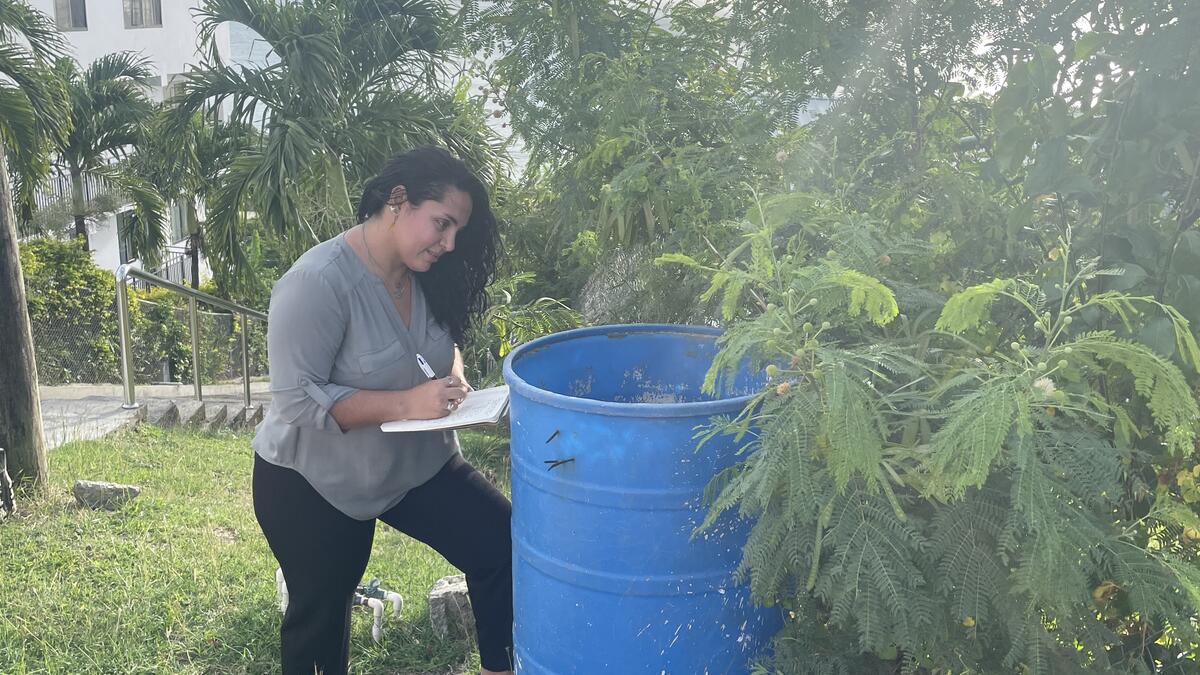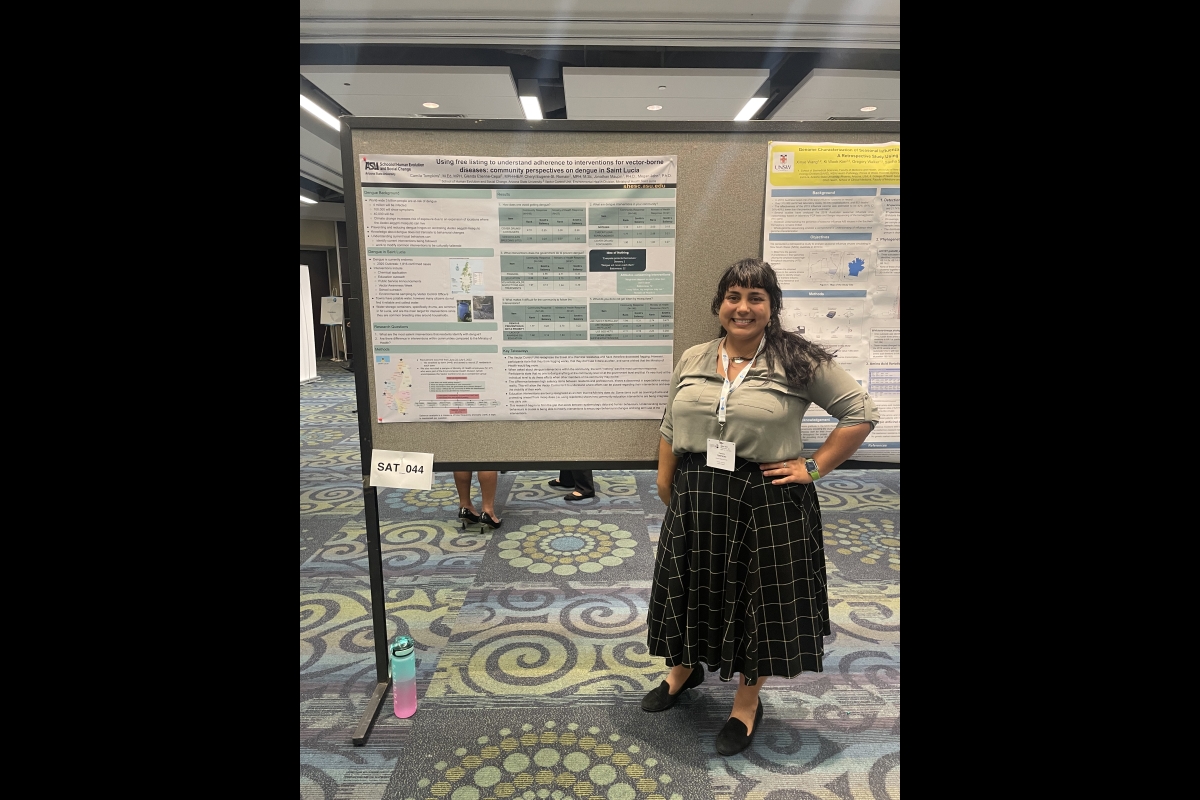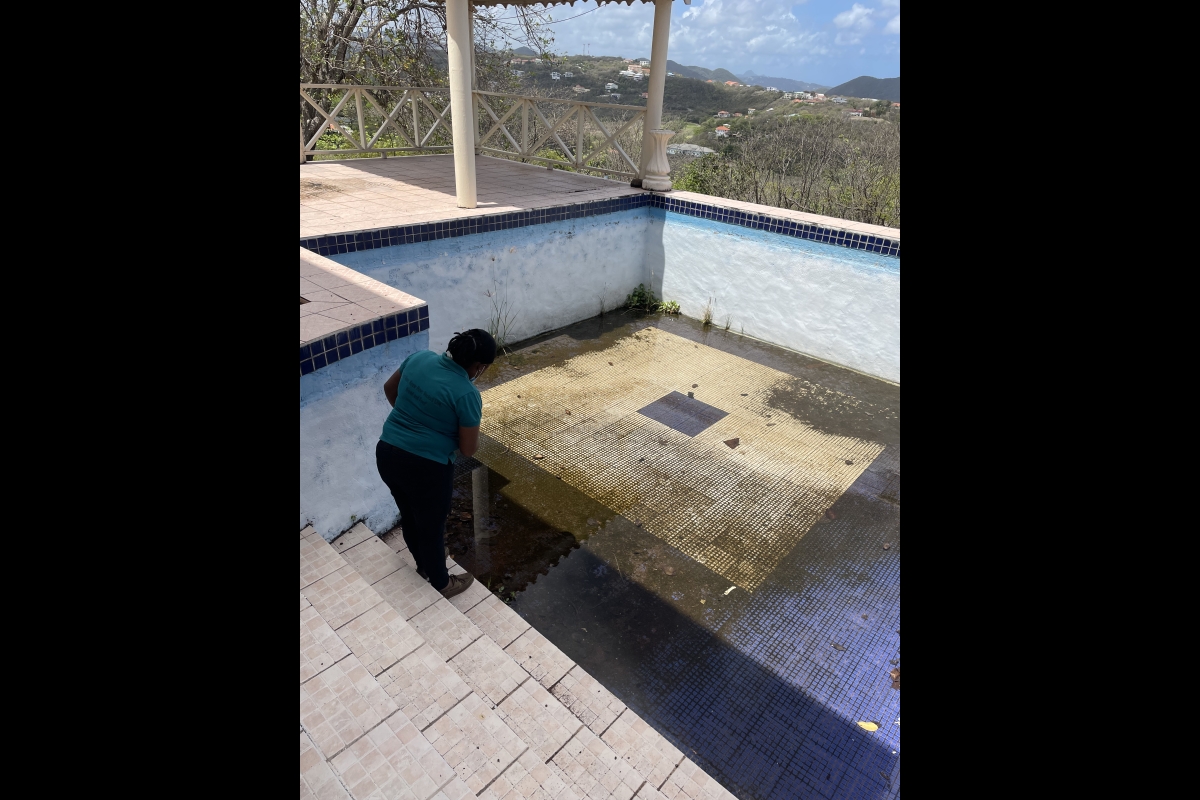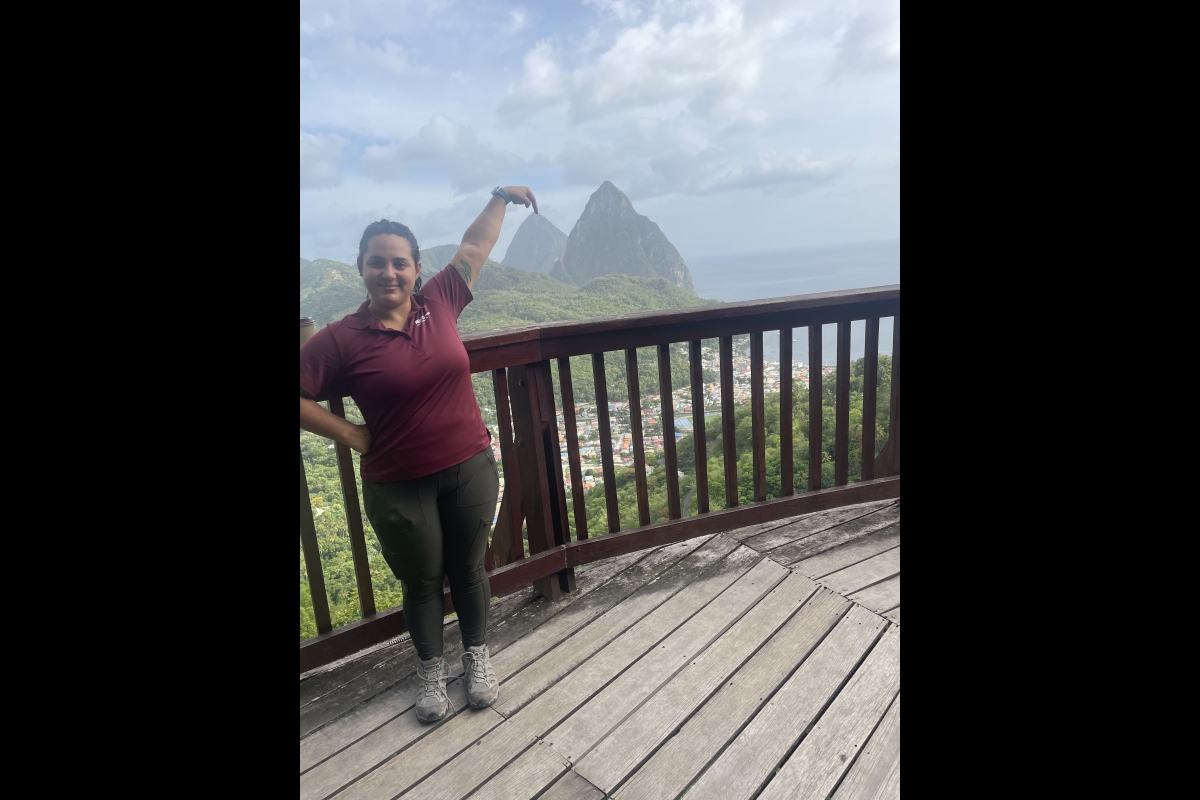ASU PhD student uses cultural lens to research mosquito-borne virus interventions

ASU global health PhD student Camila Tompkins examining household water tanks in Saint Lucia. Courtesy photo
The number of dengue cases worldwide is at an all-time high, and the mosquito that carries the dengue virus lives in Arizona. Over the past few years, there have been cases in Arizona and California.
Global health PhD candidate Camila Tompkins is studying global health and epidemiology at Arizona State University’s School of Human Evolution and Social Change, and says it's not only important to study the virus and vector, but also the cultural and human factors that influence the effectiveness and sustainability of interventions.
“My goal is to evaluate intervention programs and ensure they are culturally tailored, supported by the community receiving the intervention, and that communities are involved throughout the entire process,” Tompkins said.
Recently, she has been working in Saint Lucia, a country where dengue is endemic, to assist public health organizations and communities with the development of human-centered and inclusive design and implementation of intervention for vector-borne diseases.
ASU News spoke with Tompkins to learn more about her research.
Editor's note: Answers have been edited for length and clarity.
Question: Why are you interested in global health and epidemiology? What led you to this area of study and to ASU?
Answer: I've been interested in infectious diseases since I was in undergrad, which is one of the reasons I pursued my degree in microbiology. Having the opportunity to teach biology at ASU Preparatory Academy kept me highly interested in infectious disease and health. While teaching, I was also working on my master’s (degree) in public health, focused on applied epidemiology.
I got introduced to the idea of One Health — the idea that the health of people, animals and the environment are all related — while working as an intern under Craig Levy, the epizoologist at Maricopa County Department of Public Health. At the county health department, I began a deeper dive into neglected tropical diseases, specifically Chagas, and when I began my PhD, I switched over to focusing on dengue.
One of things I thought about a lot while getting my MPH (Master of Public Health) and applying to PhD programs was the importance of transdisciplinary and community-engaged research.
As an epidemiologist, I study the relationship between the environment and disease incidence, but I have always wanted to learn more about human factors that influence whether communities engage with intervention efforts. What is great about the global health PhD program at the School of Human Evolution and Social Change is that I can tap into a broad range of faculty expertise and research methods to better understand the relationships between the cultural context, social and ecological processes, and disease.
Q: What research are you currently working on?
A: My research aims to understand the perceptions concerning dengue and why individuals may or may not be adhering to dengue interventions. While I am specifically focusing on Saint Lucia, a country where dengue is endemic, this work is applicable to several different diseases and regions of the world since it looks at cultural, social and environmental factors at the human level.
The goal of my work is to assist public health organizations, and more importantly, communities with the development of human-centered and inclusive design and implementation of intervention for vector-borne diseases.
Q: Why is research on dengue important?
A: Each year, approximately 400 million people are infected with dengue virus, with significant health impacts. As a result of climate change, dengue is becoming more prominent in areas that didn’t have it before. The outbreaks can undermine medical, societal and economic stability, so we need to be ready to implement effective and sustainable long-term solutions that have been informed by research.
Q: Do you know if there were any dengue cases reported in Arizona in 2023?
A: When talking about cases, it is important to differentiate between locally-acquired and travel-associated cases. Locally-acquired cases are cases where people have developed symptoms without any history of travel to locations where dengue is active or present. Travel-associated cases are ones where people were infected with dengue while traveling and are showing symptoms.
Every year, almost all of the states in the U.S. have one or more travel-associated cases. In 2022, the virus was found in local mosquito traps and the first locally-acquired dengue cases were reported in Arizona.
With the Aedes aegypti mosquito, which carries the dengue virus, being present in Arizona and throughout the West, local cases may start being more common.
Q: What is the best method to prevent dengue? Is dengue treatable?
A: That is a tough question because it truly depends. Preventing dengue means preventing yourself from getting bitten by mosquitoes. So using insect repellent, wearing long sleeves and pants, and removing anything that can or does hold stagnant water are all important. While there is a vaccine, it is not usually recommended unless you have had previous dengue exposure.
Unfortunately, there are no treatments available for dengue fever. If you are the one out four that has dengue symptoms, talking to your doctor is always recommended. Dengue is sometimes referred to as breakbone fever due to the severity of joint pain and fever pain. The CDC recommends taking acetaminophen, staying hydrated and resting.
Q: Anything else you would like to add?
A: Be vigilant about mosquitos throughout the day while traveling abroad and in your own area.
More Health and medicine
ASU team part of nationwide study looking at Type 2 diabetes in youth
Near the end of an interview in which he talked about the work his team will be doing to tackle the rise in Type 2 diabetes among youth, Arizona State University Professor Gabe Shaibi answered why…
Leading the way in wellness: ASU highlighted in The Princeton Review's 2025 Mental Health Services Honor Roll
Being a college student isn’t easy — navigating new routines, people and places can be a challenge, especially if the right support system is not in place. That's why Arizona State University is a…
New Indigenous health dashboard offers robust database for scholars
By Nicole Greason and Kimberly Linn A team at Arizona State University’s College of Health Solutions and American Indian Studies program has created a new tool to aid researchers…


